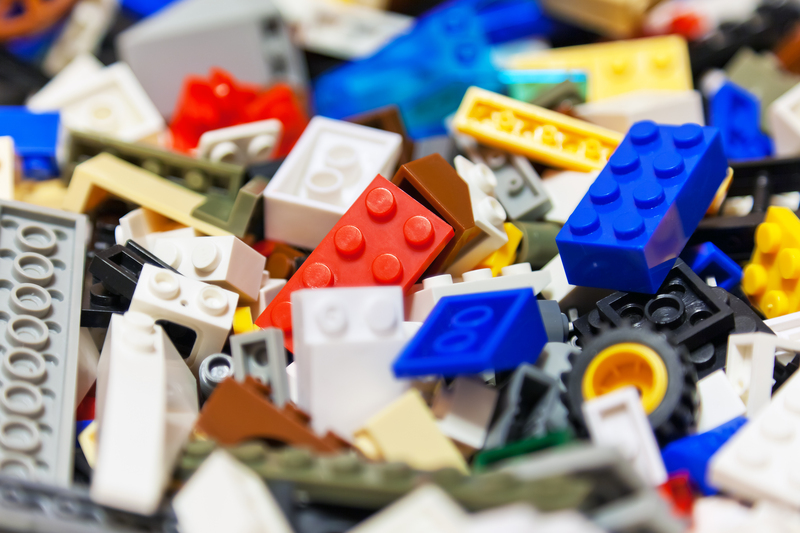Easy Guide to Making Your Kitchen Plastic-Free
Plastic pollution has become a significant environmental issue that affects marine life, wildlife, and human health. One way to contribute to solving this problem is by minimizing plastic use in our daily lives, starting with one of the most accessible areas: the kitchen. Transforming your kitchen into a plastic-free zone might seem daunting, but with the right guidance, it can be a straightforward and rewarding process. This comprehensive guide will provide you with practical tips to make your kitchen plastic-free.
Understanding the Impact of Plastic
Before diving into how to make your kitchen plastic-free, it is essential to understand why reducing plastic use is important. Plastics are not biodegradable; they break down into microplastics, which end up in our oceans, soil, and even drinking water. Animals often mistake plastic for food, leading to ingestion and often death. Furthermore, the production and disposal of plastics contribute to greenhouse gas emissions, accelerating climate change.

Assess Your Current Plastic Usage
The first step in reducing plastic in your kitchen is to assess what plastic items are currently in use. Open your cupboards, drawers, and pantry to take inventory of all the plastic products you have. These might include plastic containers, wrap, utensils, bags, and bottles. Knowing what you have will give you a clear starting point for making changes.
Replace Plastic Containers with Glass or Stainless Steel
One of the most common sources of plastic in the kitchen is food storage containers. Consider swapping these out for glass or stainless steel alternatives. Glass containers are excellent for storing leftovers, and they are microwave and dishwasher safe. Stainless steel containers are durable and great for dry storage. Both options are free of harmful chemicals found in some plastics, such as BPA and phthalates.
Say No to Plastic Wrap and Bags
Plastic wrap and bags are often used for convenience but are significant contributors to plastic waste. Instead, use beeswax wraps, which can be molded with the warmth of your hands and reused multiple times. For freezer and sandwich bags, look for silicone or fabric alternatives that can be washed and reused.
Switch to Reusable Produce and Shopping Bags
Plastic bags are a notorious environmental hazard. Fortunately, there are plenty of alternatives available. Cotton or mesh produce bags can be used for fruits and vegetables, while sturdy canvas bags are perfect for carrying groceries. Investing in high-quality reusable bags can drastically reduce your plastic footprint.
Choose Wooden or Stainless Steel Utensils
Plastic utensils might be handy, but they are neither durable nor environmentally friendly. Opt for wooden, bamboo, or stainless steel utensils, which are more sustainable and long-lasting. Not only do these materials look elegant, but they also reduce your dependence on plastic.
Avoid Single-Use Plastic Bottles and Straws
Single-use plastic bottles and straws are among the top contributors to plastic pollution. Switching to reusable water bottles made from stainless steel or glass can make a tremendous difference. For straws, there are various options, including metal, bamboo, and silicone, all of which can be cleaned and reused.
Bulk Buying and Zero Waste Stores
Buying in bulk can significantly reduce plastic packaging. Many stores now offer bulk sections where you can bring your containers for refills. Items such as grains, nuts, cereals, and spices can be purchased without the plastic packaging. Additionally, zero-waste stores specialize in providing products that are free from plastic packaging.
Make Your Own Cleaning Products
Many cleaning products come in plastic bottles and contain chemicals harmful to the environment. By making your own cleaning solutions using ingredients like vinegar, baking soda, and essential oils, you can avoid plastic packaging and reduce environmental impact. Homemade cleaning products are often less toxic and just as effective.
Opt for Cloth Towels Over Paper Towels
While paper towels aren't plastic, they often come wrapped in plastic and contribute to waste. Instead, use cloth towels or rags that can be washed and reused. These can be just as effective for cleaning up spills and are far better for the environment.
Compostable or Bamboo Dish Brushes
Many dish brushes are made of plastic, but compostable or bamboo versions are excellent alternatives. These brushes often have natural bristles and can be composted at the end of their life, making them an environmentally friendly option.
How to Deal with Existing Plastic Items
You don't need to throw away all the plastic items in your kitchen immediately. Instead, consider the following options:
- Repurpose: Use existing plastic containers for non-food items or as organizers in other parts of your home.
- Recycle: Ensure you dispose of plastic items properly by recycling them according to local guidelines.
- Phase Out: Gradually replace plastic items as they wear out or break, ensuring you choose non-plastic alternatives.

Community and Sharing
Making a significant change is easier when you have support. Engage with your local community or online groups dedicated to reducing plastic waste. Share your experiences, tips, and products that have worked for you. Community initiatives, such as swap meets and sharing circles, can also help you acquire plastic-free items without the need for new purchases.
Conclusion
Transitioning to a plastic-free kitchen is a practical and impactful way to contribute to a more sustainable environment. By making informed choices and replacing plastic items with eco-friendly alternatives, you can significantly reduce your plastic footprint. Remember, the goal is progress, not perfection. Every step you take towards a plastic-free kitchen is a step towards a healthier planet.
Start small, make gradual changes, and soon enough, your plastic-free kitchen will become a testament to your commitment to sustainability.




